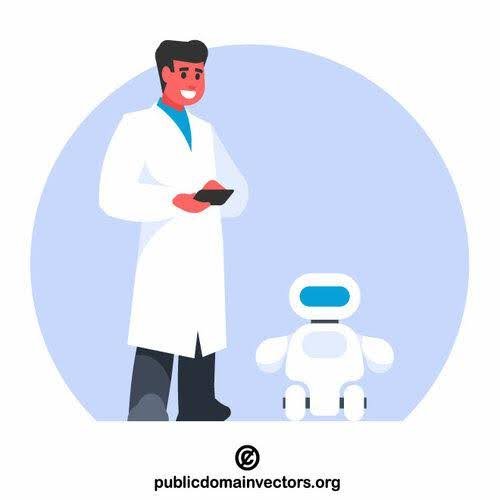AI Doctors are virtual chatbots powered by AI that’ve been fed large data regarding symptoms and treatments. Docus.ai is the prime example under this category.
Imagine waking up feeling slightly off – maybe it’s a tight chest, a nagging headache, or just a sense that something is not right. Usually, this would mean checking Google, stressing out over vague results, or waiting hours at a hospital. But what if you could open your phone, type a few words, and get an accurate, calm response from something smarter than a search engine? That is the growing promise of AI doctors, which, while not replacing human doctors, may prevent that next hospital visit altogether.
An AI doctor is not a robot with a stethoscope. It is more like a digital brain trained to think like a physician. These tools are powered by complex systems that learn from millions of medical cases, like symptoms, test results, treatments, and outcomes. With this knowledge, they can identify patterns in real-time.
You do not need to book an appointment or sit in a waiting room. These AI systems can be accessed via health apps, smart kiosks, or even through basic chat windows. They ask questions, analyze your symptoms, and offer advice, sometimes before your illness even gets worse.
They are especially helpful in places where doctors are not easily available or when time really matters. Companies like Wokegenics Solutions Pvt. Ltd. are working to make these tools even more accessible, so more people can get help sooner.
AI is powerful, but it does not replace the warmth of a doctor’s voice or the careful way they hold your hand before surgery. A real doctor reads more than test results; they read your eyes, your pauses, your pain.
But still, AI has a place at the table. While it can’t replace the human touch, it can assist in big ways:
AI doctors can scan through more data than any human could instantly. But they do not have instinct, empathy, or years of bedside experience. That is where real doctors stand firm. So instead of thinking of AI as a replacement, it helps to see it as a support system. A digital partner that lightens the load and catches problems before they grow too big.

Like any good tool, AI in healthcare has its wins and warnings.
On the bright side:
But, there are things we must stay mindful of:
The truth is, AI doctors can only work well if they are built right, tested thoroughly, and used wisely. When done responsibly, they can prevent unnecessary hospital visits, spot early warning signs, and make everyday healthcare smoother.
Yes, in many cases, it absolutely can. It might not replace your family doctor, but it could help you avoid that emergency room visit. It could remind you to check your blood pressure before things get risky. It could tell you when a symptom is mild and when it is time to act fast.

At Wokegenics Solutions Pvt. Ltd., we believe technology should work quietly in the background, making life easier, not more confusing. That is why we are investing in responsible, user-first tools that empower both patients and doctors alike. If you are someone looking for such tools, or want it to be installed in your kiosk, do drop a message!
References:
https://www.youtube.com/watch?v=xJxFr2CYbGw
https://docus.ai/blog/ai-in-medical-diagnosis
https://sigmapubs.onlinelibrary.wiley.com/doi/full/10.1111/jnu.13024
https://docus.ai/blog/chatbots-in-healthcare
https://www.foreseemed.com/artificial-intelligence-in-healthcare
https://jamanetwork.com/journals/jamanetworkopen/fullarticle/2818391